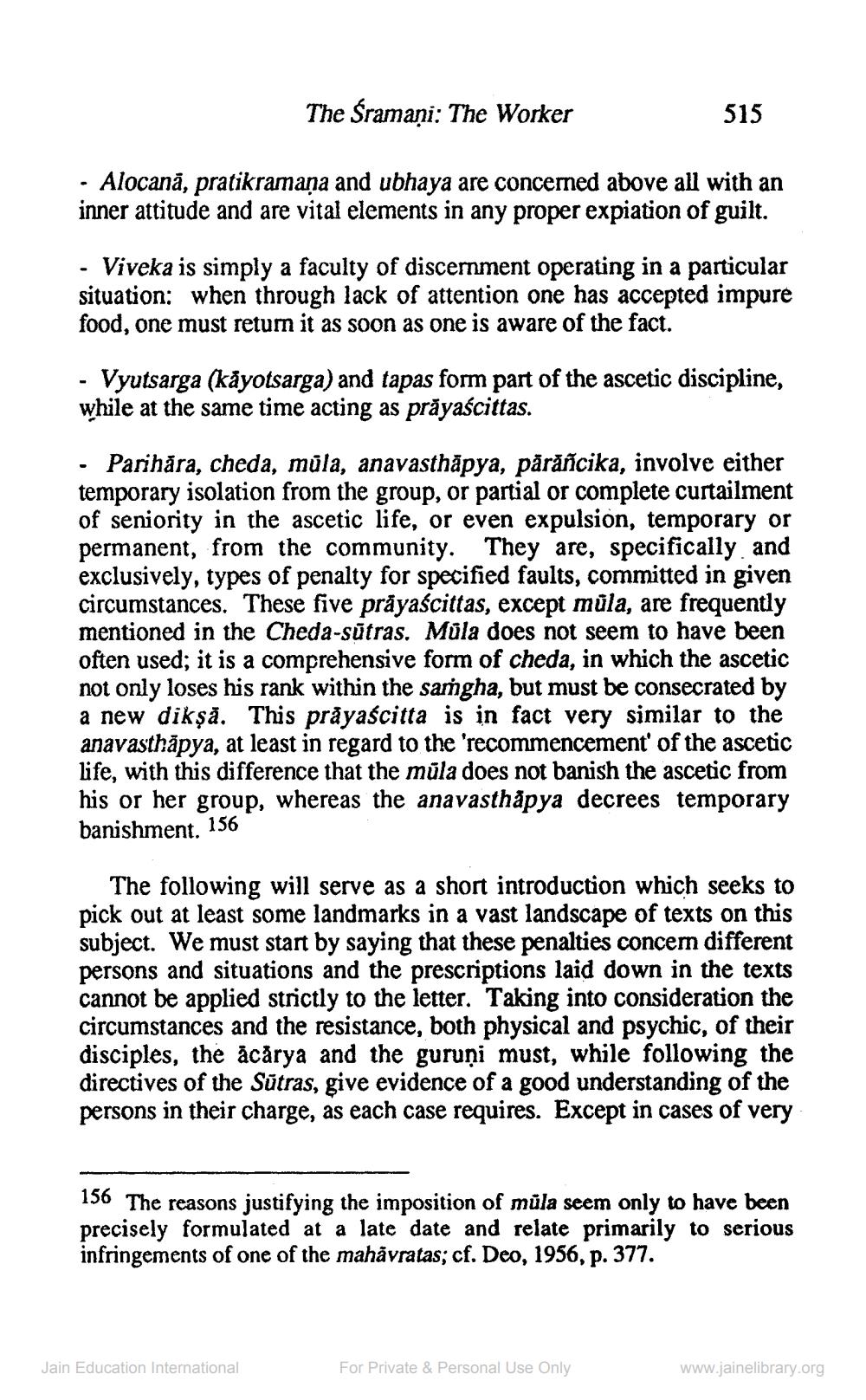________________
The Śramani: The Worker
- Alocanā, pratikramaṇa and ubhaya are concerned above all with an inner attitude and are vital elements in any proper expiation of guilt.
Viveka is simply a faculty of discernment operating in a particular situation: when through lack of attention one has accepted impure food, one must return it as soon as one is aware of the fact.
515
Vyutsarga (kayotsarga) and tapas form part of the ascetic discipline, while at the same time acting as prāyaścittas.
Parihara, cheda, mūla, anavasthāpya, pārāñcika, involve either temporary isolation from the group, or partial or complete curtailment of seniority in the ascetic life, or even expulsion, temporary or permanent, from the community. They are, specifically and exclusively, types of penalty for specified faults, committed in given circumstances. These five prayaścittas, except mūla, are frequently mentioned in the Cheda-sutras. Mula does not seem to have been often used; it is a comprehensive form of cheda, in which the ascetic not only loses his rank within the saṁgha, but must be consecrated by a new dikṣā. This prayaścitta is in fact very similar to the anavasthäpya, at least in regard to the 'recommencement' of the ascetic life, with this difference that the mula does not banish the ascetic from his or her group, whereas the anavasthāpya decrees temporary banishment. 156
The following will serve as a short introduction which seeks to pick out at least some landmarks in a vast landscape of texts on this subject. We must start by saying that these penalties concern different persons and situations and the prescriptions laid down in the texts cannot be applied strictly to the letter. Taking into consideration the circumstances and the resistance, both physical and psychic, of their disciples, the acarya and the guruņi must, while following the directives of the Sūtras, give evidence of a good understanding of the persons in their charge, as each case requires. Except in cases of very
156 The reasons justifying the imposition of mula seem only to have been precisely formulated at a late date and relate primarily to serious infringements of one of the mahavratas; cf. Deo, 1956, p. 377.
Jain Education International
For Private & Personal Use Only
www.jainelibrary.org




